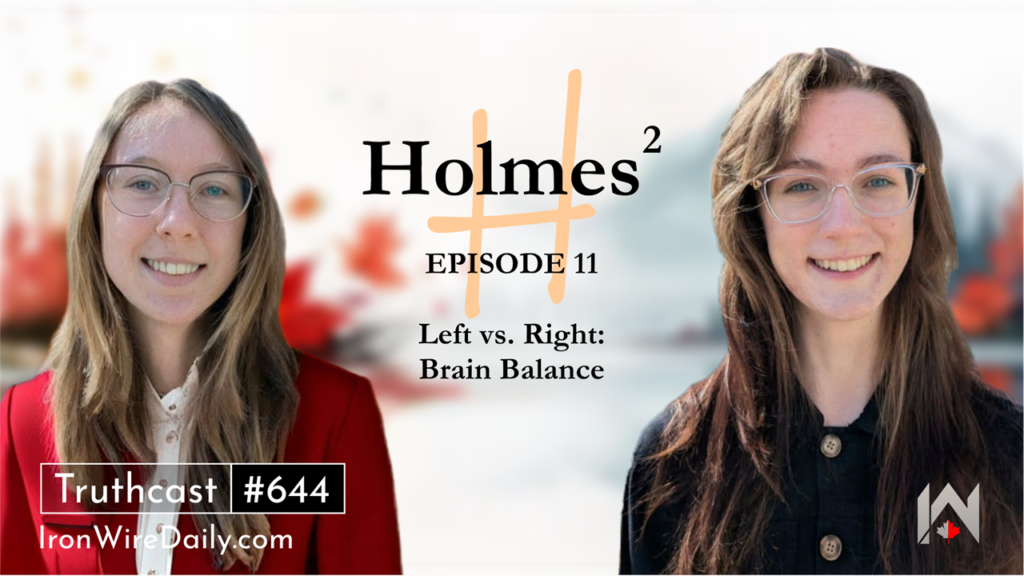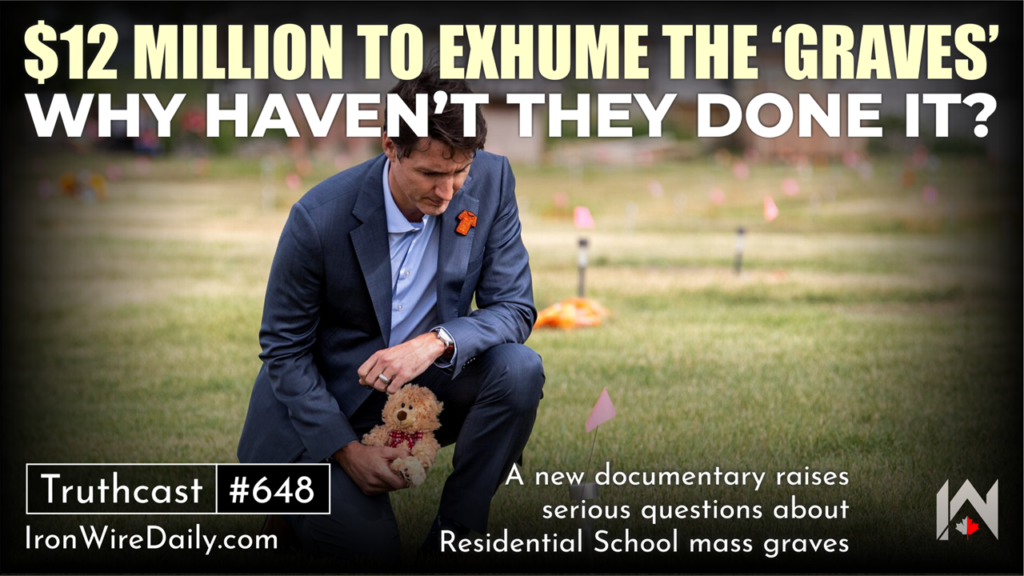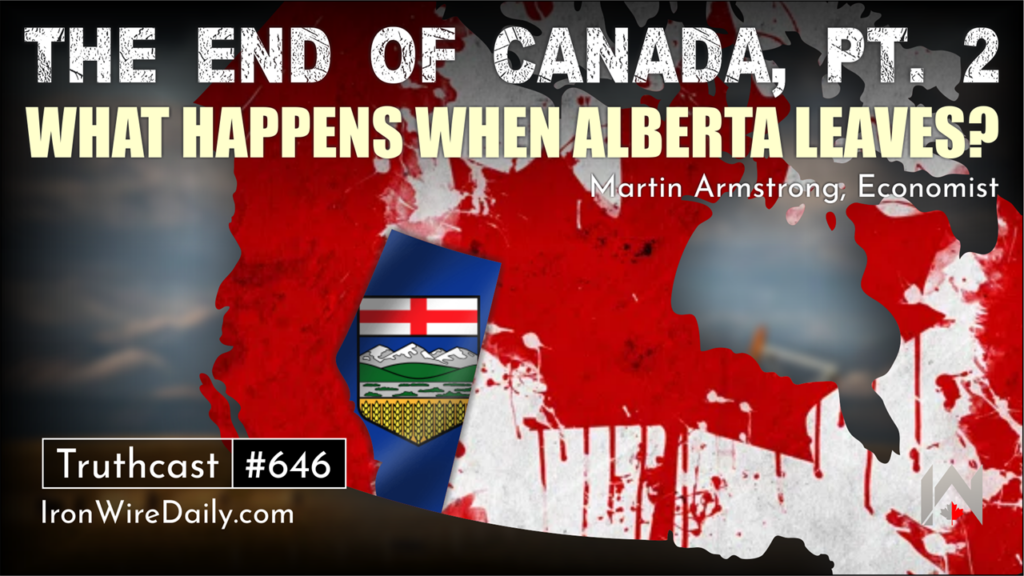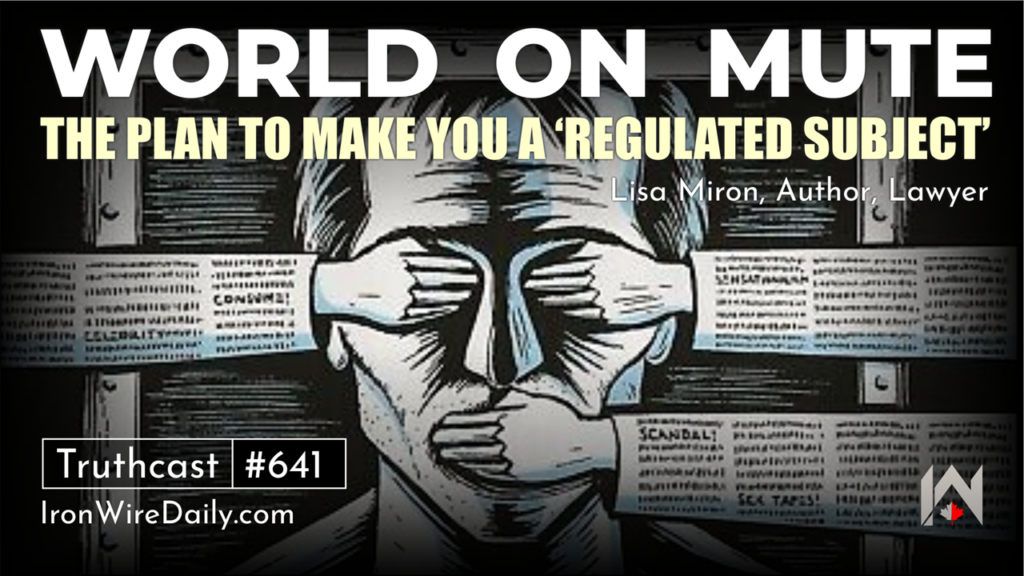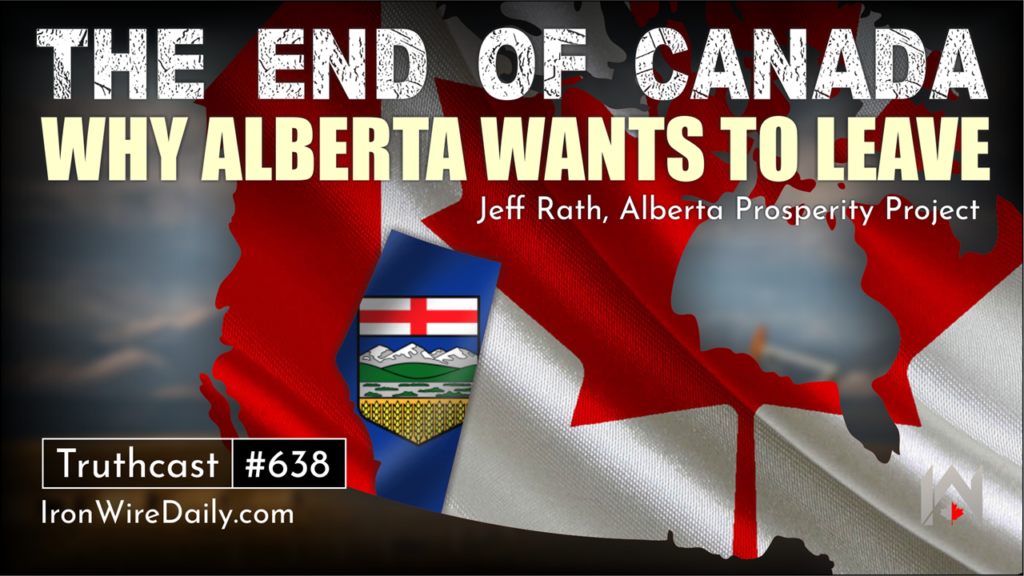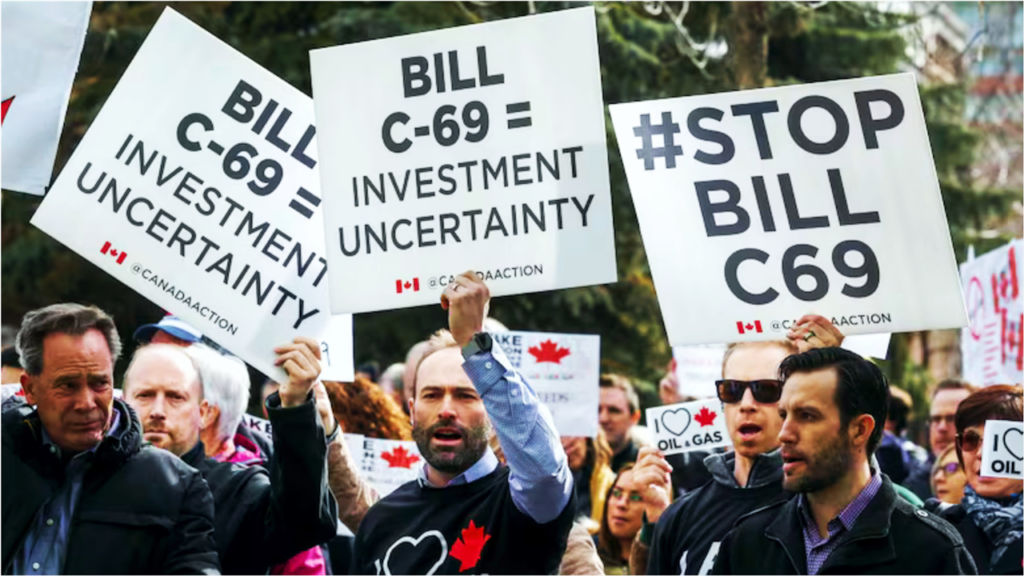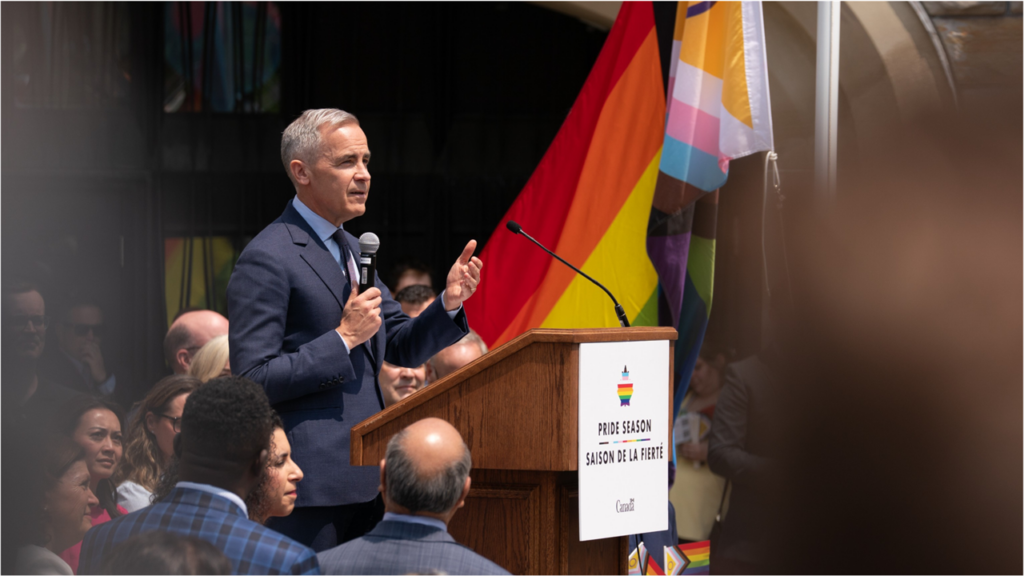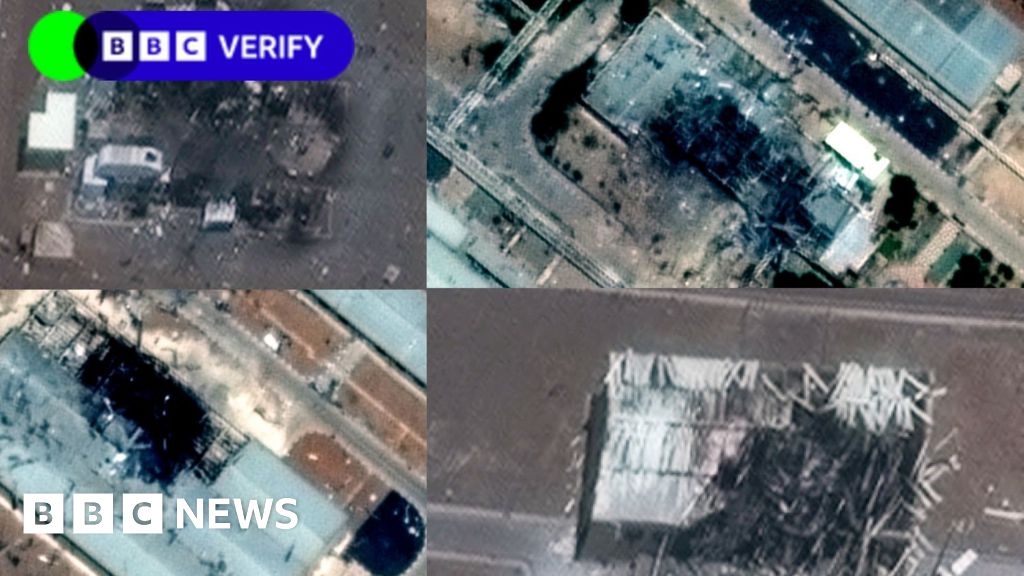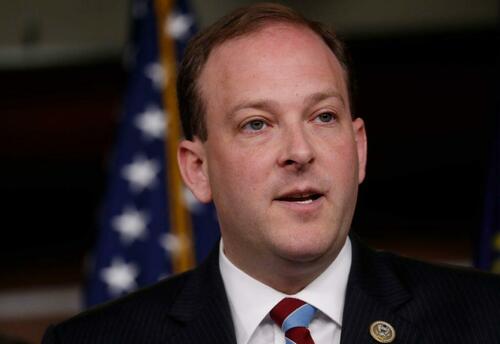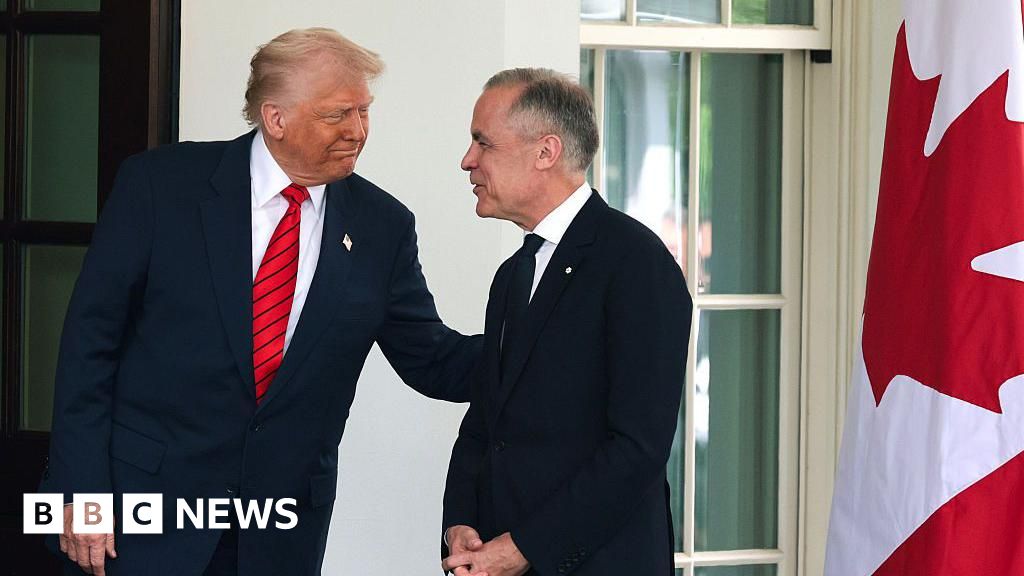Episode 12: “Tiananmen Square & Globalist-Incited Revolutions”
Madison and Maycee Holmes
Want more Holmes?
Find them on Substack, Rumble and Youtube
You can also contact the Holmes sisters directly at Connect@at-home-with-holmes.com
As our news team reported recently, the LA riots have been proven to be incited and funded by globalist forces to create destabilization. But this is hardly the first time this has happened.
(0:00 - 0:17) Hi everybody, I'm Madison Holmes and I'm Maycee Holmes and you're watching Holmes Squared. For a second I was like, are you gonna say you're Madison Holmes? Yes, I was just like, I don't go first in this. I mean, I guess you could. (0:17 - 0:35) I could. Okay, Maddie, today we have a very, very information dense episode. So we're gonna try and take our time and do our best. Okay, so. I'm with this. First, thanks to dad because dad was actually the one. (0:35 - 1:07) Oh, who gave us this idea. Gave us this idea. We're recording currently on the 9th. By the time this comes out, it'll be, I think, the 11th because they usually come out on the Wednesday. Yeah. And it was dad who said, hey, June 4th just passed. Well, Macy, what's June 4th? June 4th is the anniversary of the Tiananmen Square Massacre. Oh my god, someone's not gonna like that. I mean, someone's not gonna like a lot of what we're gonna say today. (1:08 - 1:13) No. Well, if you keep an open mind, you know. Yes. (1:13 - 1:16) Do your best. Do your research. Trust, but verify. (1:17 - 1:53) Trust, but verify. Keep to your principles of that. I always say that if you trust your judgment and you trust what it is that you've done and the work that you've put in, then you should have no problem having it challenged. And then, obviously, if it's challenged and you feel like there's some things that are not squaring up, then I guess you just gotta keep searching. It's what we talked about in our last episode. It's just what are you gonna do when you are misinformed or when you, because again, we all are, right? And so. (1:53 - 2:58) Yeah, I think that's one of the biggest things, again, people also watching this show. Our last episode's a good lead into this one, yeah. It is a good. Well, that's because mode of attention, knowing the hemispheres is everything. Even me and Macy doing this stuff. It's like, first of all, we're gonna talk with more, you know, we're gonna talk as if we know things, but we are always being opened. Half of that comes from the fact that we are doing the research. Not everybody gets the, we have the luxury of listening to stuff while cleaning toilets. So we get to do this research and do the deep dive. So we do talk as if there is some confidence and some certainty in the knowledge, but we're always expanding, keeping an open model. So conversations are still able to be had and able to be discerned. But for those who haven't yet learned the skill and the lifestyle of open-minded thinking and expansionary models, this, our show will definitely give you a run for your money if it hasn't already. (2:59 - 9:49) So, well, I mean, so the first thing we can start with is obviously we're going to be talking about Tiananmen Square. We have been doing some listening to some people that we, that are obviously far better researchers than we are, but we are getting there, who have put in the work to kind of debunk a bit of why it's called a massacre and they would more so deem it as something called a color revolution. Now, for people who are probably familiar with the Ukraine, 2014 protests, Maidan protests that were kind of trying to overthrow Yukovych, then like the Ukraine on fire documentaries and part one and two, then you guys are familiar with what a color revolution is. So for those of you who don't know, a color revolution is basically like you get a bunch of young impressionable minds, because we are the most likely to do this thing. And you try and twist them in a way we've seen it with Black Lives Matter. You try and twist them in a way where they demand reform or they stir things up violently. So that way governments have to come in and they will either impose the problem reaction solution and Galean dialectic process, or you get, so that can be the way of getting your government to basically overthrow a government that maybe you don't like. So you kind of created a bit of this like color revolutionary coup, or you demand that some sort of organization come in and save the day to help you with your reforms. So that way your government will comply or again, insert somebody else, right? So that's a bit of what a color revolution is. Like I said, we've seen it with Black Lives Matter. If you've seen the Ukraine on fire documentaries, I suggest you go there to check out how that happened with Ukraine. And so we should definitely give a little caveat. It's not, most of the time it starts with a natural grievance. You know, there was, it was Majid Nawaz who did a little breakdown on us and he's, because he's done a book on radicalization, it's called Radical, and he was speaking from experience to somebody who has been radicalized. And it starts with a genuine grievance. In the case of Tiananmen Square, there was like student protests because there were some harder times and a lot of uncertainties during where the economics were at at the time. So it starts with something real, like even, you know, Black Lives Matter, looking at racial inequality, definitely not something we're in support of. But these movements, and they always, almost always, always get co-opted. It may start natural, but it does not end that way. Yeah, it's like what happened in Germany. It's like you got terrible, like horrible economics based on, you know, going to war. So Germany was in a very uncertain place. We're like, oh my gosh, like what's, what's going on? Partly we know that that was actually instigated on purpose. It's like their economic situation was brought on purpose to create the instability because we know, because we're predicting it to happen here in the West. So if we think it's going to happen here, has it already happened in the past? Well, we already make the metaphors that we reference ourselves to being like Nazi Germany. So it's like, well, why is that? And it's because they were also going through their own economic system collapse. And then where that happened was, oh, insert Hitler, insert your problem reaction solution. And we actually can even, maybe on another episode, link to how Hitler was involved with the Tavistock Institute and also backed by Western bankers, which if you don't know that, that'll be a fun one. But regardless, problem reaction solutions, it was even played out in Germany. And then when you had was, you know, like the young, uh, like in that movie swing kids or something, it was a great example where it was like the young, um, I guess Nazi movements of the, of the young kids, like, hence again, young people and they were impressionable. And then you started to not not suffocate them. No, I don't know if that's a word, but you started to not suffy them a bit. And then that created a large movement and what it is that you needed for your soldiers for the, um, wars. So it's like that, uh, is an example of how that's also played out in the past as well. Yeah. That's on the local level when you're watching, you know, local grievances get co-opted. And then another way to, cause it's layered, obviously it's tiered to these takeovers and getting, uh, what becomes a color revolution also known as just a coup straight up. And the reason why I say that is because when it gets co-opted, it's no longer, um, about whatever the local grievance was that the local population was having. You get these external tentacles that come in and then their, their desires and their mode of attention, their plans, their agenda starts to implement. So whether it's the resources that's in it, or sometimes even the grievances, like Maycee just said, being caused by external entities, you know, for a bad economic system, it'll be done by bad policies. And in the case of Tiananmen Square, it wasn't necessarily, it was partly, uh, foreign implemented by foreign. I mean, things like, um, the National Endowment for Democracy, you get the George Soros's, you know, the, both the Anglo-American empire, basically, which includes both the West and the deep state of Britain. I don't want to condemn all of Britain, but, um, and it's their, it's their outlook, aim for like the resources that'll continue it. And that'll continue to literally finance the color revolution. Or in the case of the reason why I bring up NED, it's because Macy said, you know, a government that we're not supportive of, well, it can even be someone like we as people might be very supportive of the government, but maybe the government is doing what's best for the people and not what's best for the Anglo-American empire. (9:49 - 16:10) Maybe they're trying to keep their resources to themselves. Maybe they're trying to re-industrialize their broken third world country. And while the oligarchs don't like that, you know, your Henry Kissinger's, your Soros's, so they go, oh, we need to implement a new government. So we're gonna, we're gonna create the circumstances where we can start this color revolution. And it's really just a coup to put in a new government that we support. And even though the people might not actually have a problem with it. So that's also something that happens. Yeah. And it's really not hard to believe, like to me, because we're involved in like local politics and like, you see it on that scale as well. It's like, we'll be involved in things like maybe with like, yeah, exactly. Kickley is a great example. We were just talking about that. So on the municipal level, right. It's like, okay, so you got a group of people actually trying to like do something like the, a better Calgary party. And they're trying to actually put in people that are grassroots and want the best for people. Right. But then you have this like other external entity that wants to put its force and make sure that it's like what we call the Jyoti Gondek and the hateful eight. It's like, put their resources and backing into that to make sure that we don't get in our guys, right. And so that they can keep perpetuating their agenda. But it also happens in the sense of like the UCP or in the, what is it? The APP, Alberta Prosperity Project. I'm sorry. Alberta Prosperity Project, the UCP all the time, you'll hear people's in those movements going like, oh, we don't want to fracture off. Cause that happens so often. And you'll see it, like, you'll be like, oh, conservatives, the problems that they can never group together, they always fraction off. And so the same thing is like, even in Alberta Prosperity Project, we're like, oh, we're a little bit concerned that like we might have foreign actors coming in and doing a thing. Right. So it's like, if we feel like that can happen on even a local level, it's like, why wouldn't that strategy be used and implemented? And it is obviously on a more broader scale. So I guess to get into a bit more of the juicy specifics, we should probably, I guess, where do you want to start? Cause there's a lot to cover. Well, we were just talking about the NED and I guess we can introduce some of these. There's a historical transition here that occurs, like we've alluded to Operation Gladio and we've given some resources between Cynthia, her through a glass darkly, like really good resource to learn about Operation Condor Gladio, which is definitely these coups or color revolutions and how that works. And then we've also done Colonel Towner. We alluded to her a couple episodes back. Well, maybe we can start by referencing, I guess, some of the two episodes that we just recently watched on Breaking History and on Rogue News with Matthew Ehret. So if you go to those just to show people. So yeah. Episode 99, Geopolitical Insights, NTNM and Mass Care. So Matthew Ehret kind of does a really good presentation to kind of dive into what are some examples in history of what these color revolutions have looked like. And then in this one as well, it's kind of the same presentation, but a bit more in depth. And in it, he goes in the beginning, kind of describing what the different color revolutions have looked like. And we encourage people to go and check it out themselves because there's a lot that he covers. What it is that we can touch on, though, is the fact that the National Endowment for Democracy is basically a group that says we need to go around the world and we need to go promote democracy wherever it is. Right. Now, the problem is, is like that's that's all nice and all, but it's basically a front. It's like what we're describing is the fact what we just said, which is if you can, why wouldn't you want to go in and then use your external forces to try and basically co-opt what could have been a beautiful thing? Like genuine grievances. People want change. Now, the question is, is like, is the person that these kids or something protesting, the ideas that these kids are protesting, are they actually genuinely like bad ideas or is it external forces coming in and saying, we don't like this guy because actually he's against everything imperialistic that we are in favor of or against everything oligarchical that we are in favor of. Right. And so then through those videos that we just referenced and also Colonel Tanner Watkins on Operation Gladio on our Rumble channel, they and Cynthia Chung as well, they all deep dive into what the National Endowment for Democracy has done in trying to take out what we would call good actors and replace them with bad actors. Yeah. And that's not entirely a secret. You know, some people following the Trump administration, they get they've been looking at the NED funding a lot of these revolutions over the years. Like you got the 2003 Rose Revolution in Georgia, 2003 Hong Kong Revolution, both for the same reason, which you actually just brought to my attention because I knew the Hong Kong one, but I didn't know the Georgia one. Then you get 2014, 2014 for these are the things that you have to realize. It's not a coincidence because in 2014, you had a Hong Kong Color Revolution. I believe that one might have been the umbrella one. And then also in 2014, you have Tiananmen. They have their revolution. (16:10 - 20:29) That's the Sunflower Revolution. And you have one in Ukraine, the Myanmar, as you said, Maidan. And then 2019. And then there's Arab Springs 2011. But all of these have very similar funding going behind it. But it's not exactly a mystery because people have said Trump administration has been taking down and limiting NED and USAID because USAID has also helped fund these color revolutions, you know, because they're helping implement their own agenda. But under the guise of democracy, both of these lately have been getting a bit more attention in the media, saying Trump is now recognizing and getting ready to bring them down. Now, Brian Brilotech from the new Atlas that you and I listen to, he's talked about how NED is not actually being dismantled. They're just becoming less transparent. And you can actually go on the website where you could once find there's been some past records and then Wayback Machine on the funding that they did towards the Ukraine revolution, NED, and you no longer can find. You actually have to go through a bunch of loopholes to do that or just find somebody that kept record of it. And that's the same if you actually go on their website now. They're just blatantly saying, yeah, we're just pulling most of our records about the funding and the grants that we're giving to people. So NED is not exactly being abolished like it's been sold. It's just becoming less prominent and less conspicuous about the thing that it's still going to probably continue to do. And I believe it's about the same with USAID. So this is one thing to consider. And it's similar to one thing that I really got from this is that this not being new, the reason why we say go back to Colonel Towner and Cynthia is because they actually go from the Operation Gladion, Operation Condor, pretty much launched right from after World War II with the facilitation of NATO and such, NATO secret armies to stay behind armies, Churchill's armies that stayed under the threat of, you know, Russian invasions. Because remember, guys, right after World War II started the Cold War, magically, you know, even though we were allies with Russia, we magically, you know, decided to turn and let's go after them. So those stay behind armies, those NATO armies, they basically did what the NED and all of these colour revolutions we're talking about. They did it then and under military ops and stuff like that. And then after some time went by, the NED was created in 1983. And then you got the Club of Rome, which was 1968. All of these democracy foundations came out in the 1970s. And so that's, it's the new, it's the rebranding, basically. We see how they rebrand to continue their mission. In my notes, I just wrote down because I was just taking some notes. It says in 1975, the church committee hearings happened and they were exposing things like MKUltra, Project Mockingbird, CIA regime change. And in the 1990s, Operation Gladio was exposed along with NATO, right? But so you had like 1975, these things were being exposed. So then it was like, okay, we need to do a rebranding because people are starting to see what it is that we are doing. And so then they started doing basically the Operation Gladio kind of setups where it was like, okay, we're going to do counter insurgency through paramilitary operations. And so if you guys want to learn more about that, that's like Operation Condor, that is Operation Gladio. And then once probably in 1990s, again, when Operation Gladio and NATO were getting exposed, what I would say happened then is then you started getting like, well, when did the NED, when was the NED created? 1983. (20:30 - 22:02) 1983. Okay. So right when that rebranding in 1975, when those things were getting exposed, that's when NED was created, right? And so that was being created. And then alongside that was also NATO and these Operation Gladio type tactics, which is funny because like some of it was like basically the CIA kind of saying like, we're just going to be creating our own kind of paramilitary. So it's like a parallel off, like not the military, but its own separate entity. Well, yeah, this is the, they send in NGOs now. So you get things like, okay, so you have the Open Society, which is literally funded by George Soros and this audience will be familiar with George Soros. And their goal is the Open Society Foundation's work to build vibrant and inclusive democracies whose governments are accountable to the people. That sounds great, doesn't it? Well, look at this, this is Freedom House, another thing, expanding and defending freedom around the world. Freedom House is founded on the core conviction that freedom flourishes in democratic nations where governments are accountable to the people. So all of these have the, it's under their NGOs, you know, their non-governmental organizations, and they look great on face because it's helping democracy. But even NATO, we go back then, they did peacekeeping missions to help spread democracy. (22:02 - 24:33) And to me, like, it's so funny because it's like, the idea of, this is a bit of the problem that I see when it comes to the spreading of democracy kind of thing is the fact that, Maddie, you can just take it off screen for a second. Yeah. The fact that you can have, like, you're going into another country trying to basically use all your financial resources and backing and training for, go in and train all these people in Vietnam, or you train all these people in China, perhaps, and now here's the ideas of how to start a revolution, right? And then this is how you're going to get it, what it is that you want, right? And it's like, if that was happening here in the and you had a bunch of NGOs, like from China, or from anywhere else, from Russia, coming in and going like, here's how you start a revolution. And here's what it is that you want. It's like, how do we know that obviously these organizations that are backed by George Soros of all people, right? And we can even kind of say like the Trilateral Commission, because that was also by created by people like David Rockefeller. And so, and Henry Kissinger, and it's like, these are the people that were backing all the way up to the creation of what became the National Endowment for Democracy. So, it's like all these bad figure types that are trying to promote democracy. It's like, I'm sorry, but that's like a giant, it's like a giant union. It's like, here's how we're going to go and back all of our interests, guise it as democracy. And then the West thinks that it's going and it's helping these things, but we're not even looking at the people who created these organizations in the first place and going like, whoa, whoa, whoa, is this actually them promoting what it is that we think as the average person is good democracy? Because it's like, if we really care about the idea of people having sovereignty, then it's like, well, then let the Russians and let the Chinese and let the people in Ethiopia and let these people decide for themselves then. Like, why are we coming in with our resources to be like, here's how you start a revolution? It's like, if they can't figure out what it is that they need to do in order to try and figure it out with their government, like the same way that we have to learn here, like that we have to figure out ourselves. It's like what, they can't do that either? They can't try and figure that out? I don't understand. (24:33 - 32:56) You bring up a very, very, very relevant ideology. Like this dogma you just presented was the very thing about this whole audience, all of you know the WEF and you alluded to Henry Kissinger and George Soros and David Rockefeller. Well, if everybody here knows the WEF, you should definitely know where the WEF came from, which was the Club of Rome. And the Club of Rome, also founded by David Rockefeller, same with the Trilateral Commission. And even when you see, they don't hide it. This is the thing with the Trilateral Commission. You actually go on their website, look, championing a commitment to the rule of law, open economics and society. Not a coincidence, you know, you get George Soros' open societies foundation and then you get the Trilateral Commission and democratic principles. So all under the guise of what they're trying to do here. But you said the WEF and the WEF being founded on the Club of Rome, the Club of Rome's greatest literature in 1972, Limits to Growth. They not only believe in the limits to growth, they look at people like you just said, if they can't figure it out, well, there are people out there that look at the less development nations as if they can't figure it out. They're not as intelligent as the West, blah, blah, blah. Meanwhile, I can believe that this is one of Matthew's favorite lines. What do I need to ignore in order to believe that? So if I'm going to believe that the African nations cannot do the same development and better that we have in the West, I have to ignore the fact that they have been subjugated to people like the Club of Rome, or organizations like the Club of Rome, for generations upon generations. I'd have to ignore all of the economic hitmen type stuff, operations that have gone on there to keep them underdeveloped. Even the IMF conditions on the loans that they give have prevented them from doing infrastructure developments to help them. So you have to really look at this whole big game and go, oh, I wonder why they haven't done this thing. It's like most of the time it's because of external fingers wanting to suck on their resources, keep it from the people using their own resources, which here in Alberta, we know lots about not being able, we can't even refine our own oil. We know what it's like to have other people capitalize on your resources. Yeah. Yeah. Because it's interesting because even in the breaking history thing, and you were mentioning the Hong Kong protests as well. In the breaking history, when they were saying that Georgia experienced basically its own color revolution, and Matthew was saying that they were trying to introduce basically their government law on transparency of foreign influence. That's what the bill is called. I have it here just written. I got this literally by Googling Georgia foreign funds bill. So it'll literally come up. I got it off of my Brave browser. And it just said, this bill would require civil society organizations receiving foreign funding to register as organizations carrying out in the interest of a foreign power. This bill has faced significant opposition leading to widespread protests and criticism from human rights organizations like Amnesty International. And so it's basically, it's the Georgia government that was basically saying that it's like, if you're a civil society organization receiving foreign funding, then you need to be classified as such that you're doing it in the interest of a foreign power. And we basically need to audit what the heck, where are you getting the money? What the heck are you doing with it? Right? And so that to me seems like, okay, not a bad thing. And then boom, color revolution. Oh no, that's not okay. We can't have that happen. And so Maddie, you were mentioning with the Hong Kong protests that it was actually pretty similar, right? Yeah. In Hong Kong, again, same year, 2003, they wanted to implement Article 23, which would basically make things like those foreign entities coming in, things like the NED and stuff like that, it would basically make it illegal. That's the same thing. They were trying to acknowledge the outside influences and prevent that from happening. So both of those things. And coincidentally, when the, I can't remember the name of the individual as a female, but when she announced that she was going to pass this Article 23 as law, suddenly, miraculously, hundreds upon thousands of people were protesting, you know, it's like on a dime. So is that naturally started? You know, if that's one of the things, if people knew what that was about, well, they wouldn't be protesting it. That's the same thing in Hong Kong in 2019. There was, Hong Kong was trying to introduce some sort of law, and it was to allow China to persecute certain criminals within Hong Kong. See, the way Hong Kong works is kind of like the city of London, just so people know. If people know the city of London, it has completely different jurisdiction than the rest of Britain. You know, it has its own police force, its own, kind of what Alberta's a little bit been advocating for, but we're a province. We're not like a tiny little oligarch within a city already. But the city of London has their own jurisdiction, just like the Vatican has their own jurisdiction, even though they're a minor city. Same thing with Hong Kong. But there was a terrible crime that happened where some, you know, boyfriend utterly butchered his girlfriend, but then he went to Hong Kong after doing it. And because of the way the whole one country, two systems China policy works, the Chinese government couldn't technically persecute the individual because he was hiding in Hong Kong, even though they committed a crime on Chinese soil. And most people acknowledge that Hong Kong is a part of China, but regardless. So again, the people were protesting, oh no, big bad China's overreaching into our Hong Kong law, legal jurisdiction, and they were protesting. Meanwhile, the Hong Kong government was trying to pass this to give the Chinese government the legal authority to persecute this murderer. And so if people were informed, and it's not just the people, because I do understand like we alluded to earlier, it's not just people getting misled. Some of these people are literally paid intelligence assets. And that's the thing that we see also with Tiananmen Square. At Tiananmen Square, it's known for the student protesters, but the reality is where most of violence came from wasn't the students. It ended up being from CIA provoked and taught other actors, laborers and stuff like that. So even though there might be a portion that was natural, the other portion, they are funded and they are hired actors. They're the extras in your movies, except nobody pays attention to them, even though they literally make the whole backdrop of the movie. And like we said, go check out those videos that we referenced in order to actually get some more information on that. Because I think, yeah, if you wanted to pull that one up as well, I watched one with Brian Berletek on the new Atlas, and it's Busting the Myths Surrounding 1989 Tiananmen Square. And he also, he talks about how the different articles and also the different, I guess, leaks that came out showing that the CIA had a hand in it. And so don't just like take our word for it. They are the ones that present the evidence and no use repeating what it is that they've said, because they've said it. So we're just pointing you in the direction. But yeah, like I think it's important as well to maybe highlight Gene Sharp, because he was basically, he's, he made a documentary called How to Start a Revolution. (32:57 - 34:04) And I have it in my notes, which was like, what was the intellectual wiring of the NED? And his ideology is the guiding force for many color revolutions that we've seen throughout history. Do you want to say something to that, Maddie, or should I just continue with my notes? Maddie Oh, no, go ahead. Okay. So he worked for 30 years at the Center for International Affairs at Harvard University. And then co-founders of the Center for International Affairs were Henry Kissinger, which Henry Kissinger was director of the Rockefeller Foundation. Which I was like, oh my gosh, okay. And then you have, let's see, James Perkins as well. Let's see. And Samuel Huntington. And those are names that I want to mainly highlight the most when it comes to this, because the Center is where Henry taught, but it's also where Klaus Schwab was studying and was mentored by Kissinger. And then obviously Klaus Schwab created the WEF. And during that time, that's when the Trilateral Commission was being created. (34:05 - 34:15) Maggie Yeah, if you always want timelines, everybody knows WEF was 1971, but then Trilateral Commission was like 1973. Yeah, I think I have it pulled up here. Maggie Club of Rome, 1968. (34:16 - 34:40) Yeah, the Trilateral Commission founded in 1973 by private citizens from Western Europe, Japan, and North America aimed to foster closer cooperation among these regions on common problems. And then it says, yeah, on the list of people that are a part of this, Samuel P. Huntington, who authored the chapter on the United States on the crisis of democracy. And then you have David Rockefeller, Zbigniew Brzezinski. (34:41 - 35:07) And these guys are founders of the Trilateral Commission. Yeah, the Trilateral Commission held a report, a crisis of democracy gathering in 1975, you know, two years after its founding, where this Samuel P. individual helped host it. And the whole thing was on the necessity of foundations like Freedom House and NED and stuff like that to help democracy spread over in the future. (35:07 - 35:45) Yeah, one of the quotes that I screenshotted actually from the Matthew video that we were watching, because I just thought it was very significant that Samuel P. Huntington, again, Trilateral Commission Project Kyoto, Japan Task Force on the Governability of Democracies. Governability of democracies, I'm just saying. Anyways, he said, one might consider means of securing support and resources from foundations, business corporations, labor unions, political parties, civic associations, and where possible and appropriate, governmental agencies for the creation of an institute for the strengthening of democratic institutions. (35:46 - 37:50) Right, so you're going to be grabbing all of these different resources to try and promote democracy. So again, that is the NED. And I actually have here my notes, where if we take a look, it says the American Freedom Foundation spearheaded an act passed by Reagan called the National Endowment for Democracy Act, right. And then I think it was the American Freedom Foundation was also created around the exact same time that all of these different groups were being created as well, if I'm not mistaken. Yeah. And it was, oh, it was Bill Casey, who's a trilateral who created the American Freedom Foundation. So there you go. But they make their intentions very clear. Yeah, it was from like, so limits to growth, we kind of alluded to that. Henry Kissinger, whose fellow trilateral commission guy, he, and everybody knows, he basically trained and brought up and taught in all the same places that Klaus Schwab happened to be. He's quoted here, the U.S. economy will require large and increasing amounts of minerals from abroad, especially from less developed countries. That fact gives the U.S. enhanced interest in the political, economic, and social stability of the supplying countries. Supplying. Supplying. Lesser developed countries are supplying countries. Wherever a lessening of population pressures through reduced birth rates can increase the prospects for such stability, population policy becomes relevant to resource supplies and to the economic interests of the United States. Now that is really important. That's huge. That's, yeah, because that literally gives, that explains even things like the China one child policy. When you look at all of these organizations being created in the seventies, well, the one child policy was put in, I believe, in 1979. So, all of these things came out first. And yeah, I know you have that. Have something on that. Yeah, go ahead if you want. (37:50 - 37:58) Sure. Okay. So, I just literally, I was like, I searched up club of Rome and one child policy. (37:59 - 42:47) That's it. And it said, yes, the club of Rome played a significant role in influencing China's one child policy. The club of Rome's Neo-Malthusian population theories, which predicted population crisis and advocated for stringent population control measures when introduced to Chinese leaders through a systems engineer named, I think, okay. It's spelled Song. Song. And then it's J-I-A-N. So, I'm not, Song Jian. He was working in missile and aerospace science, attended the seventh triennial world Congress of the International Federation of Automation Control in Helsinki in 1979, where he first encountered cybernetic based methods of population control inspired by the club of Rome's work. Upon returning to China, Song and his associates applied these theories to China's specific circumstances leading to the implementation of the one child policy in 1980. So, it's interesting because it's like these, we already don't like the depopulation narrative. I'm assuming all of us don't who are listening to this. And we know now where it comes from. It's actually hugely, if you guys want to look into the club of Rome, it's huge on promoting things like Thomas Malthus, where it's just like limits to growth. You know, there's too many people on the planet and we don't have creative minds apparently that can solve these problems. So, we just need to kill ourselves. It's like, we were mentioning an episode back about the World Wildlife Fund and how Prince Bernhard of the Netherlands, actually I had it written somewhere in my notes as well that they were connected basically to this depopulation agenda. But it's like, so even all the time people will go like, well, no, like George Soros was clearly an asset for China, but it's like, no, China was an asset for George Soros and the club of Rome. Amen. Oh my God. So, I'm like, I feel like people kind of get that a little bit around, but it's like, we just need to figure out, okay, so if we put in the work to figure out where all these families, these top families come from, the Rockefellers, George Soroses, if we're trying to put it in the work of what these think tanks are, right? It's like, okay, so where is that being played out upon other nations? Are we giving them our bad ideas instead of the other way around? And yes, of course there's bad actors. So, you'll have people like, I don't know what's his name, Maddie, the Zhou Jiang. You'll have people like Zhou Jiang that'll gravitate to the bad ideas and try and implement them. And actually that's exactly what was happening at the time of the Tiananmen Square Massacre. Yeah, Zhou Jiang, for those who don't know, was one of the, he was in power in 1989 when Tiananmen Square occurred. And he has ties to Soros and then Reagan, Ronald Reagan, who helped also pass things like- Who passed the National Endowment for Democracy. So, but for those, because Tiananmen Square, people look at Zhou Jiang and they call him the Gorbachev of China. And people know Russia's history a bit more than they know China's and, fair enough, same here until recently. But after the Soviet Union fell, the Anglo-American empire, always wanting to overthrow Russia has been a long-term goal of but they thought this is a great opportunity to liberalize them. Let's liberate them from their communist ways and teach them how to do true capitalism and a free market economy. So they privatized everything, but radical privatization and radical free market economy only benefits the upper elites almost every time. So Russia ended up, all of these oligarchs were trying to incentivize privatization right after the Soviet Union fell. And speculation as well. And speculation. And it was funny because when these guys got kicked out, this Russian deep state that was in coots with the Soroses and the Anglo-American empire, they got kicked to New York. They fled to New York to escape persecution in Russia for the treason of trying to economically rape their people. And it's funny because even people like some of the leaders of Tiananmen Square, after trying to lead and cause this violent uproar, of which one of the big myths about it is that all these students died and got crushed by tanks. (42:47 - 43:07) But even the famous picture of the guy in front of the tank, he didn't get crushed. You can watch the full clip. He walked away. Other people helped guide him off away from the tanks. But he didn't get killed. But he didn't get killed, not in the least. And a lot of the violence didn't come to the students, nor from the students. And it wasn't even at the square. It wasn't. (43:07 - 43:34) Apparently it was a thousand miles from the square. Yeah. It was somewhere else in Beijing and more soldiers, actually, the People's Liberation Army, the PAL soldiers who weren't armed, by the way. There are some pretty gross pictures and we're not going to put them on here, but if you watch those videos and the presentation that Matthew gave on those that we alluded to earlier, you will see them. And the Brian Burletic one. Yeah. (43:34 - 43:41) Brian Burletic. You will see the photos of the soldiers. Most, there were more soldiers harmed in the making of this massacre than there were students. (43:42 - 43:57) And some of them weren't even students. They were just adults. Again, people that were also provocateurs, this funded by George Soros. There was this woman, I think, that you're referring to her name. I think her name is Chai Ling. Chai Ling. (43:57 - 44:10) In the Brian Burletic one, he plays the full video of what it is that she's talking about and Matthew also quotes her as well. She played a large part in the Tiananmen Square movements and she was a prolific leader. There's this thing called Operation Mockingbird. (44:11 - 44:45) Yellowbird. Sorry, Operation Yellowbird. When you just simply Google it, Maddie, I put it in the telegram. It's literally the latest link that you can grab. Yeah. Well, everybody's familiar with the concept of Operation Yellowbird. Everybody knows Operation Paperclip. If you've heard of Operation Paperclip, which is them taking after World War II, escaping all the Nazis into the West. Giving them new jobs. (44:45 - 44:52) Giving them new jobs, most of them in NATO. Funny how that works. Operation Yellowbird, it's the same thing. (44:53 - 48:19) Yeah. It says that it was basically a British Hong Kong based operation to help the Chinese dissidents who participated in the Tiananmen Square protests of 1989 to escape arrest by the Chinese government by facilitating their departure overseas via Hong Kong. Western intelligence agencies, such as Britain's Secret Intelligence Service, AKA MI6, and the U.S. Central Intelligence Agency, CIA, were involved in the operation. She, one of these ... She was 18 years old at the time. Chai Ling, yeah. Chai Ling. She was involved in Operation Yellowbird and got sent to New York where she probably lived out her days in luxury or whatever. When she's quoted, if you guys go watch those videos, she's literally quoted as saying that she's sad because she doesn't know how to tell all the student protesters that we need more bloodshed in order to get the government to crack down on us and kill us, so that way it gets people to see just how terrible they are for the movement to move forward in my brain when I saw that. We've made comments about the fact that it's like some people might not wake up to the fact of the vaccines until children are on the floor and dying, but we make those statements because we know it's already happening. We say more children are just going to have to unfortunately be seen dead in order for people to understand that this is happening, but that's not us saying more children need to die, so we should probably facilitate that in order for people to see that our government's bad. It's like, no, if your government is as bad as you say it is, that's what the protests are in the first place. Not the protests are there to go and provoke the government to do a bad thing, so therefore you can justify, look, our government's bad. It's like, no, they should already be bad, and that should justify why you're there in the first place. I don't know, but anyway, she was part of this. She got escaped via MI6, via us to the CIA, so you have to be asking yourself, it's like, why? If they're truly pro-democracy, it's like, guys, people who are watching this show, us trying to make this show, it's like, we are the plebeians that you could technically say are the pro-democracy types. We've been to protests, trying to protest against bad government regulation, and we were there during the, my body, my choice. It's like, then technically we would be the people that the government would choose to save. Like, what? The government that we're trying to protest, and so I'm just like, no, you gotta be asking yourself, well, what kind of people are they actually saving then? Yeah, and it's not a coincidence, again, so the Russian oligarchs after the Soviet Union fell, they tried to privatize everything, and then, of course, got kicked out, and they were like, recognized for the traitors against Russia that they were. They got moved, and they got sanctuary New York. Well, these same people from Tiananmen Square, where they, first they went to Hong Kong, because again, Hong Kong is under different jurisdictions than the rest of China, because nobody knows the history of the century of humiliation of China's history. Hong Kong is basically just another, it's basically the Ukraine, you know, it's basically another proxy. (48:21 - 49:19) And Taiwan. And Taiwan. Taiwan and Hong Kong both are basically the proxy nations in China that are under the control and influence. Still, even though people will tell me Hong Kong, you know, got released back to China, they're still financially completely controlled, for the most part, by the Anglo-American empire. So, considering that those people from the Taiwan, the dissident, they went to Hong Kong, and then from there went to New York, and it's not a coincidence that they keep getting sanctuary in New York. Yeah, there's a series, I think, on probably Colonel Tanner's Rumble, but I also think it might be on War Hamster. If you guys go and check that one out on Rumble, I'm pretty sure it's simply just called War Hamster. And him and Colonel Tanner are doing a series on the Skull and Bone Societies. And so, if you want to know why they're getting sent to New York. (49:20 - 49:24) Oh my god. There you go. It just gets bigger and bigger. (49:24 - 49:28) I know. We haven't even touched upon Miles Guo. No. (49:28 - 53:03) No, but that's another time, because we're already at 50 minutes. So, I guess then, just to maybe close it off, is it's like, we know where we will send you. We'll send you all those videos. So, that's where we're telling you to go and take a look for yourself, because we did not touch nearly everything at all that is presented by these analysts and by these people that are trying to do the deep dive in the research. We showed you what it is that we simply just quick Google searched, and there you go. So, I think the way that we can end this off is just basically, remember that what's going on, on even your own local political scale, could very much have, could be going on, on the global scale. And remember that the organizations that are trying to, I guess, ruin us, are also trying to ruin other countries. And then we do need to remember that it's like, you may not think that you would be the type of person during the time of maybe the Red Scare, when it was like, oh, Russia's trying to nuke everybody and, you know, the Cold War and blah, blah, blah. You may have been like, oh, I totally would have seen past that. Like, just no, they weren't doing that. Like, now we understand that that's a bit of a hoax. The Cold War was definitely a hoax. And if you don't, then again, Cynthia Chung's work, she has a book series, a book called The Son How Much The Black Sun Never Set. Me and Maddie did a podcast episode with her on our sub stack. So, just regardless, if you do understand that that was a hoax, or even if you understand that the Ukraine 2014 protests were a hoax, so you can go and you can think that far ahead. But now when we're being told that we're being infiltrated by China, it's like, what if that is a projection, and we are literally doing that to other foreign countries? And the evidence has shown that that is exactly what the Anglo-American Empire has done and continues to do. So, check that out for yourself. Don't just say our word for it. We've given you a whole list of names so you can deep dive to check that out. So, yeah, that's all I got. Yeah, that's pretty much it. So, thank you, everybody, for coming on this debunking the Tiananmen Square massacre myth with us. You should have definitely a lot to think about. And we hopefully will. We can do more in the future. Our whole thing is just, again, critical thinking. This isn't like a... You could call us Chinese sympathizers, but I mean, that would be your label. And then I'd ask you, okay, why are you labeling us that? Because I don't label us that. But it's really just how to think through. Like Macy said, I know they're fooling us. We know that. WEF is the easiest one. Episodes back, we talked about all the think tanks and the Fabian societies and stuff like that that are everywhere. We know we're being misled. And this whole program, if anybody's confused about our intentions, it's just, okay, where else are we being misled? Like Maycee said, the previous episode, To Come Full Circle, is a really good indicator of our motivations because we just, me and Macy, know that we're always getting a little bit misinformed. You know, we have Mis, Dis, and Mal everywhere. (53:04 - 53:23) That being the case, everything that it seems like a standard thing, like Tiananmen Square or the anniversary just came up, and everybody knows what happened in Tiananmen Square. Do we? Yeah, I mean, exactly. It's like you guys question the narrative of the vaccine, and then it just led you down a whole rabbit hole of where else is my government lying to me. (53:23 - 53:31) Vaccines are safe and effective. It's as simple as where else is your government lying to you? That's it. Thanks, everybody, for keeping an open mind. (53:32 - 53:37) Till next time, this has been Holmes Squared.


